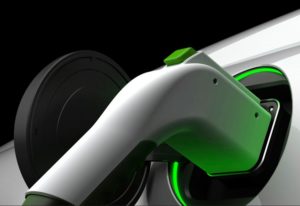Nano One Ramps up Efforts on its Innovative Lithium Iron Phosphate Technology

Nano One is pursuing to jointly develop solid state batteries and low-cobalt chemistries.”
 Nano One Materials Corp. [TSX-V: NNO, OTC-Nasdaq Intl Designation: NNOMF, Frankfurt: LBMB]. Â Dan Blondal, CEO of Nano One Materials, is pleased to announce that its Lithium Iron Phosphate (LFP) cathode material, and the cost of making it, are outperforming global benchmarks and could be a disruptive force in the lithium ion battery market space.
Nano One Materials Corp. [TSX-V: NNO, OTC-Nasdaq Intl Designation: NNOMF, Frankfurt: LBMB]. Â Dan Blondal, CEO of Nano One Materials, is pleased to announce that its Lithium Iron Phosphate (LFP) cathode material, and the cost of making it, are outperforming global benchmarks and could be a disruptive force in the lithium ion battery market space.
“Major cathode producers have begun evaluating our LFP and initial results are consistent with the excellent battery performance we’ve been measuring in our lab,” said Mr. Blondal. “The preliminary economic modeling is also very compelling with LFP production costs conservatively estimated at 10 to 30% below industry standards.”
The global LFP market size is projected to be 130,000 tonnes in 2025 and worth about $1.5B. To address this opportunity, Nano One has developed a proprietary process, using lithium carbonate, that enables lower cost sources of iron and phosphate than those used presently by LFP producers. Economic modeling of this innovative process, based on adding production line capacity in units of 10,000 tonnes per annum, delivers capital and operating projections well below current industry costs. This leads to a sizable revenue opportunity that Nano One is evaluating with commercial interests in the lithium ion battery and cathode material space.
LFP is the cobalt-free, high durability, low cost, and safest cathode material of choice for lithium ion batteries. It is used in e-buses, e-bikes, power tools and grid storage systems for renewable energy. As costs come down, LFP may also replace lead acid batteries, further increasing demand.
LFP is currently produced through either hydrothermal or solid-state methods. The hydrothermal method produces high quality LFP but is costly due to high pressure and high temperature aqueous reactions and a waste lithium salt stream that must be recovered. The solid-state method, by comparison, is lower cost with lower quality LFP, produced by grinding, milling and firing in controlled atmospheres. Both of these methods require powders of LFP to be carbon coated in a series of post-production steps. In contrast to these production methods, Nano One has developed a simpler process that produces high performance carbon coated LFP particles from an aqueous solution operating at atmospheric temperature, pressure and mild pH. It uses low cost raw materials, with fewer steps and does not produce a waste stream.
Nano One Chairman, Paul Matysek added “There is a compelling business case with our LFP technology, it is ripe for partnership on full scale production, and this adds to other opportunities Nano One is pursuing to jointly develop solid state batteries and low-cobalt chemistries.”
Nano One Materials Corp.
Dan Blondal, CEOÂ
For information with respect to Nano One or the contents of this news release, please contact John Lando (President) at (604) 420-2041 or visit the website at www.nanoone.ca.
